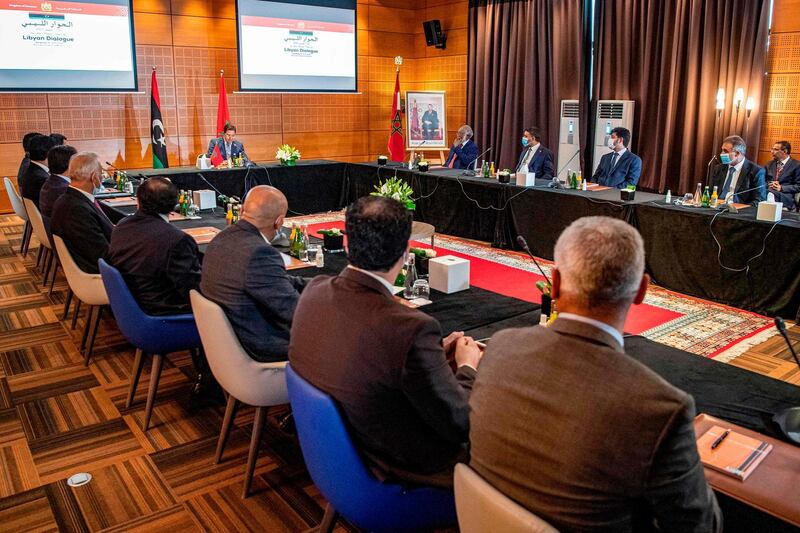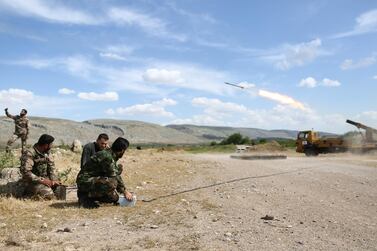Delegates from Libya’s rival administrations on Sunday met for talks in Morocco, more than two weeks after both sides announced a surprise ceasefire.
The meeting, held under the initiative of Morocco, began on Sunday in the coastal town of Bouznika, south of Rabat.
Morocco hosted peace talks in 2015 that led to the creation of the Government of National Accord, one of two rival administrations in Libya.
Called the Libyan Dialogue, the talks brought together five members from the GNA in Tripoli and five from the House of Representatives parliament in the eastern city of Tobruk.
Moroccan Foreign Minister Nasser Bourita said before the meeting that his country was offering the Libyans space to discuss points of contention dividing them.
"The kingdom will applaud them regardless of the outcome," Mr Bourita said. "Morocco has no agenda or initiative to submit."
A solution to Libya’s crisis must be decided by Libyans under the auspices of the UN, he said.
Libya has endured almost a decade of chaos since the 2011 Nato-backed uprising that toppled and killed Muammar Qaddafi.
Last year, Field Marshal Khalifa Haftar, who backs the government in the east, launched an offensive to seize the capital Tripoli from militias employed for defence by the GNA.
The Libyan National Army forces were repelled this year by Turkish-backed GNA forces, and fighting stalled around the Mediterranean city of Sirte, the gateway to Libya’s eastern oilfields and export terminals.
On August 21, the administrations announced that they would cease all hostilities and hold nationwide elections, drawing praise from world powers.
At a January summit in Berlin, the main foreign countries involved in the Libyan conflict agreed to respect an arms embargo and to stop interfering in Libya’s domestic affairs.
Sunday’s meeting in Morocco coincided with talks in Istanbul between Turkish President Recep Tayyip Erdogan and GNA Prime Minister Fayez Al Sarraj, Ankara said.
During closed-door talks in Istanbul, Mr Erdogan pledged that Turkey would continue to support the GNA, his office said.
Mr Erdogan and Mr Al Sarraj also discussed recent developments in Libya, as well as bilateral relations and regional matters.
“Libya’s peace and stability would benefit its neighbours and the entire region, starting with Europe," the Turkish leader said.
"The international community ought to assume a principled stance in that regard."
Turkey’s interference in Libya has drawn international condemnation, including from the UAE.
The UAE's Minister of State for Foreign Affairs, Dr Anwar Gargash, said last month that Turkey should stop interfering in Arab matters.
Dr Gargash criticised comments on Libya made by Ankara’s Defence Minister, Hulusi Akar.
“Relations are not managed by threats and there is no place for colonialist delusions in this day and age,” he said on Twitter.
Turkey sent between 3,500 and 3,800 Syrian mercenaries to Libya in the first three months of the year, the US Defence Department’s inspector general said in a report released in July.







